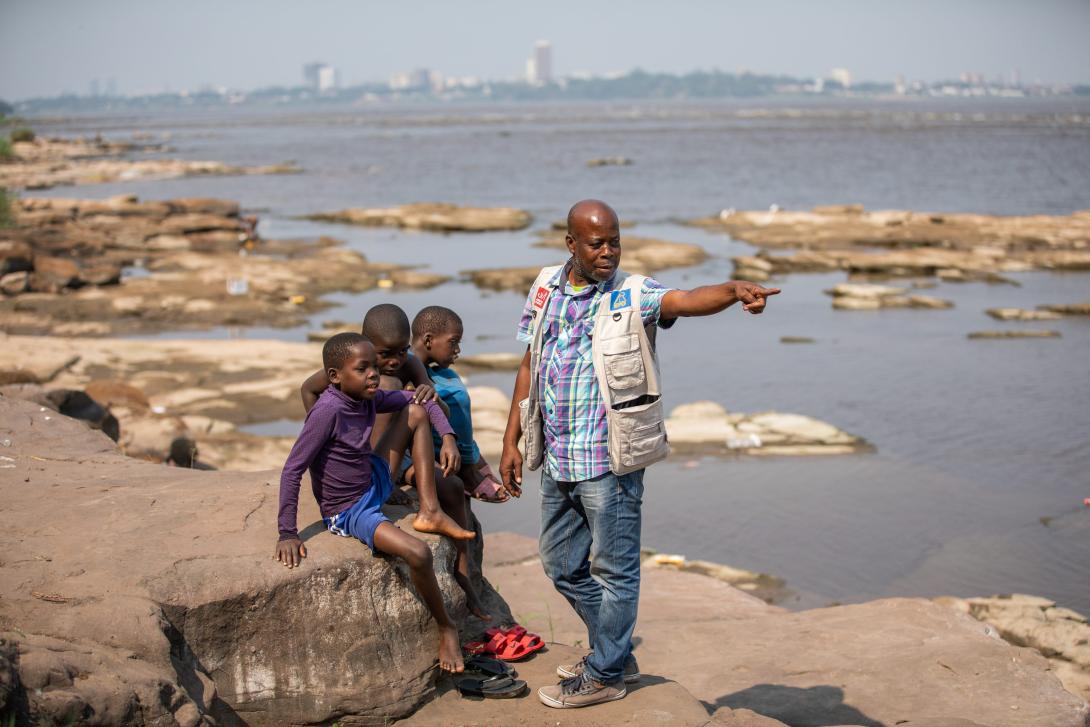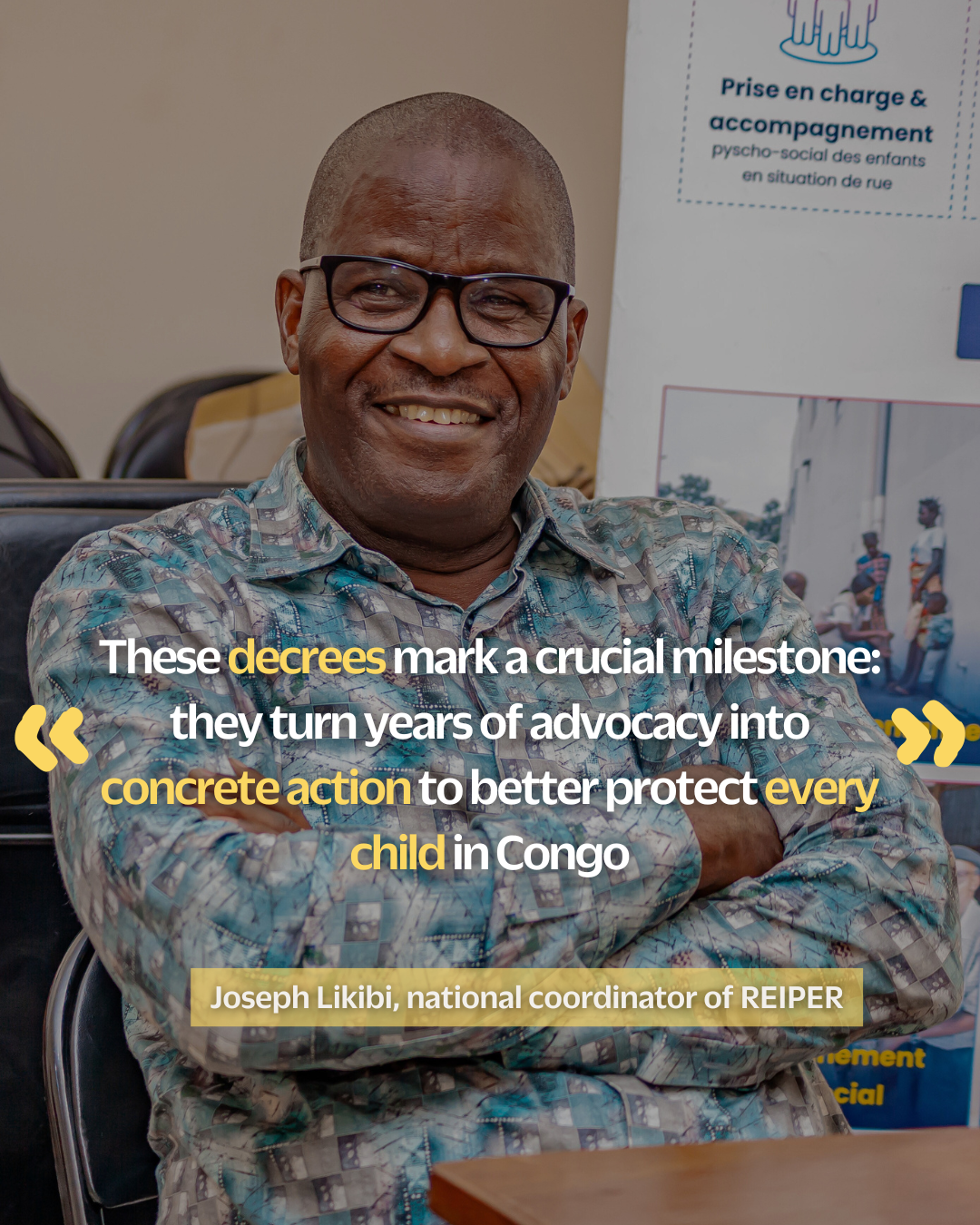

Fifteen years after the adoption of Law No. 4-2010 on child protection, the Government of the Republic of Congo has taken a decisive step forward by signing two key ministerial orders essential to its implementation. A major milestone for children’s rights, this progress is the result of years of advocacy efforts carried out in Congo alongside our partner REIPER (Network of Practitioners on the Phenomenon of Children in Street Situations) and in collaboration with UNICEF.
These two orders strengthen the legal framework for child protection in Congo. The first order establishes a Child Rights Observatory, responsible for monitoring, analysing and preventing abuse, while strengthening the protection of children who are victims of violence. The second sets up an early warning mechanism for children at risk, a system designed to identify, report and prevent cases of abuse more effectively.
Going forward, it is essential that the State fully implements these mechanisms and continues to adopt further orders on other key aspects of child protection, such as access to health and education, the prevention of violence, and the right to identity. These measures would help turn legal progress into tangible change, ensuring that every child in Congo benefits from effective protection and that their rights are fully upheld.

Interview with Joseph Likibi, National Coordinator of REIPER
How do you explain the signing of these ministerial orders, 15 years after the adoption of the law?
The signing of these orders was accelerated thanks to international advocacy, in particular through the visit of Benoît Van Keirsbilck, member of the UN Committee on the Rights of the Child, which we organised in December 2024 with the support of FAAI and in collaboration with UNICEF. This visit helped mobilise State authorities, speed up the decision-making process and make long-awaited commitments a reality. I can confidently say that without this visit, we would probably not have obtained these orders that we had been waiting for years, or at least, not so soon.
In practical terms, what do these orders change for child protection in Congo?
These orders specify and clarify how the early warning mechanism and the Child Rights Observatory will operate. REIPER already manages a child protection hotline that allows cases of violence or abuse to be reported, this could directly feed into and strengthen the work of these new mechanisms. These two orders therefore make the implementation of the Child Protection Law more concrete, for both citizens and public institutions.
